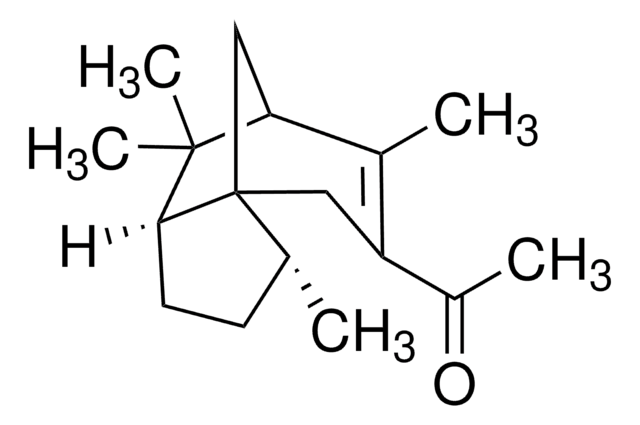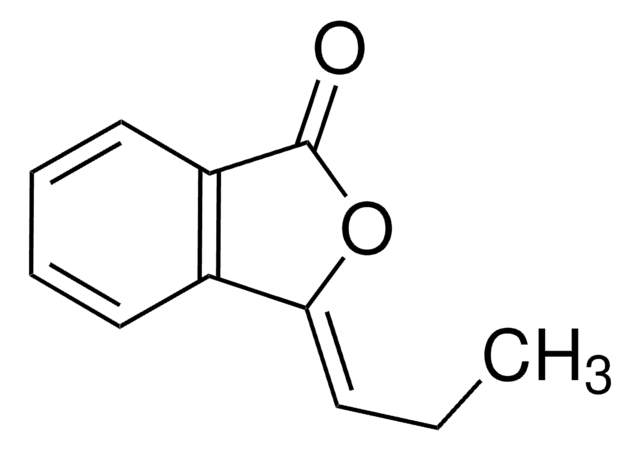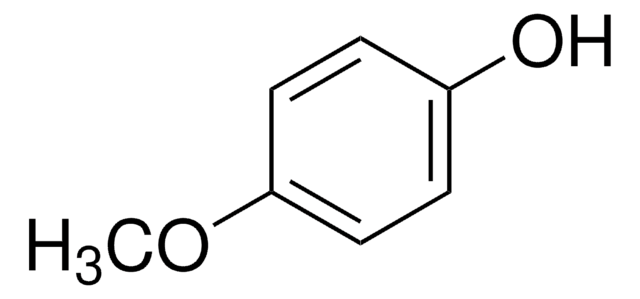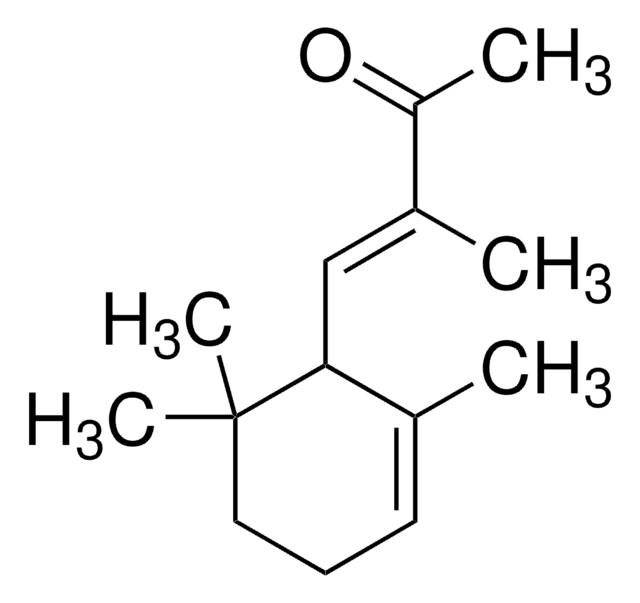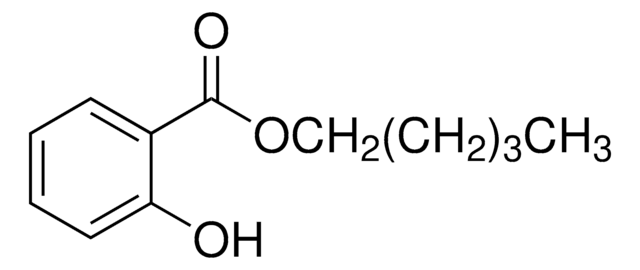44064
3-Methyl-5-(2,2,3-trimethyl-3-cyclopenten-1-yl)-4-penten-2-ol
analytical standard
Synonym(s):
Ebanol
About This Item
Recommended Products
grade
analytical standard
Quality Level
assay
≥90% (GC)
shelf life
limited shelf life, expiry date on the label
application(s)
cleaning products
cosmetics
food and beverages
personal care
format
neat
InChI
1S/C14H24O/c1-10(12(3)15)6-8-13-9-7-11(2)14(13,4)5/h6-8,10,12-13,15H,9H2,1-5H3/b8-6-
InChI key
RNLHVODSMDJCBR-VURMDHGXSA-N
Looking for similar products? Visit Product Comparison Guide
General description
Application
hcodes
pcodes
Hazard Classifications
Aquatic Chronic 2
Storage Class
10 - Combustible liquids
wgk_germany
WGK 2
flash_point_f
226.4 °F
flash_point_c
108 °C
Choose from one of the most recent versions:
Certificates of Analysis (COA)
Don't see the Right Version?
If you require a particular version, you can look up a specific certificate by the Lot or Batch number.
Already Own This Product?
Find documentation for the products that you have recently purchased in the Document Library.
Our team of scientists has experience in all areas of research including Life Science, Material Science, Chemical Synthesis, Chromatography, Analytical and many others.
Contact Technical Service